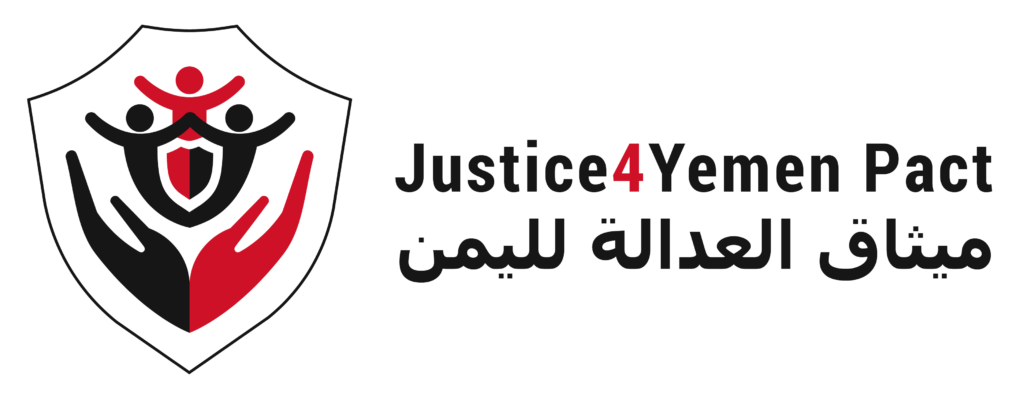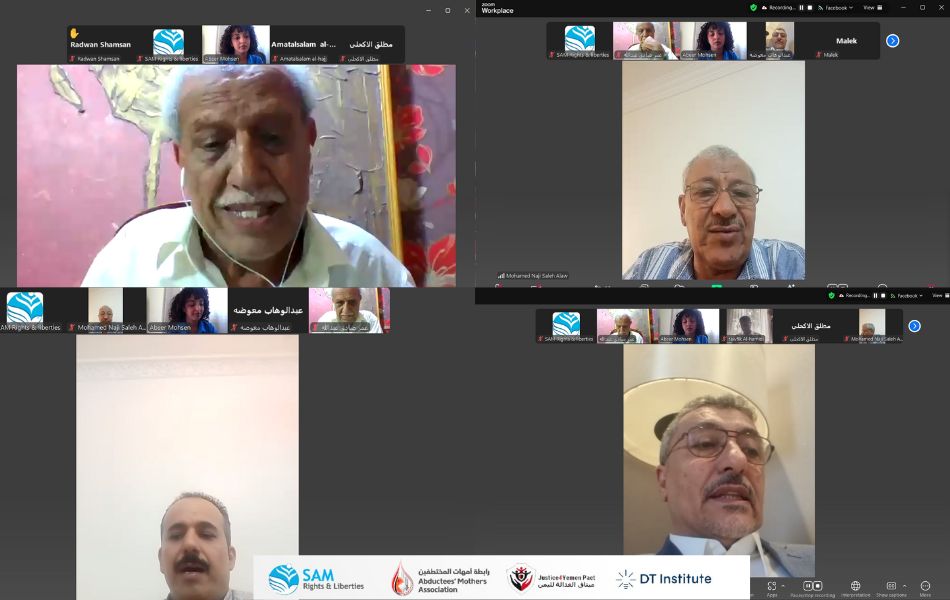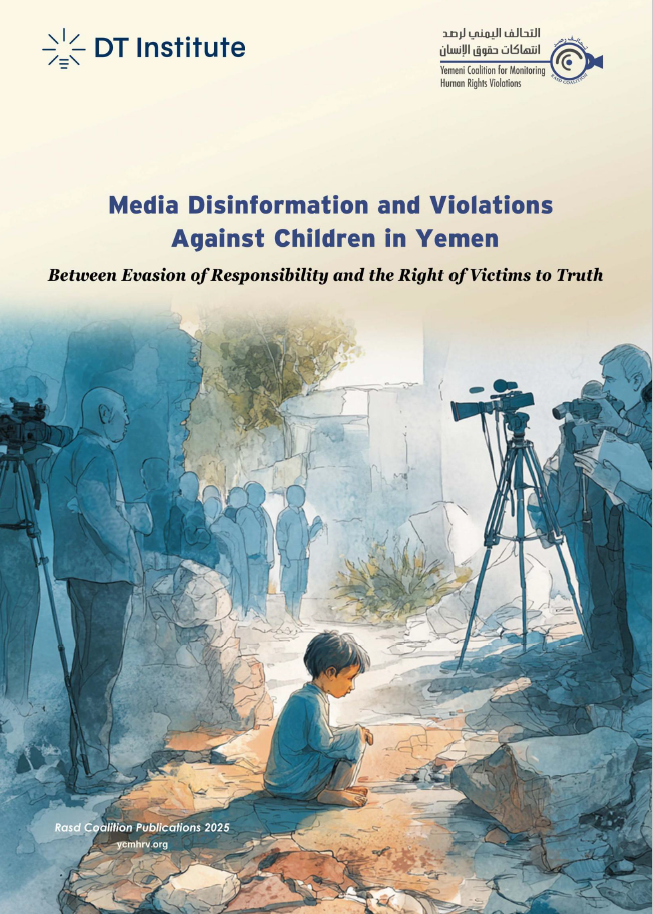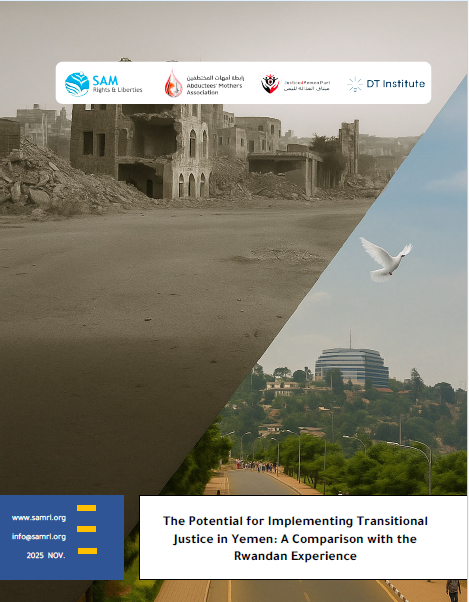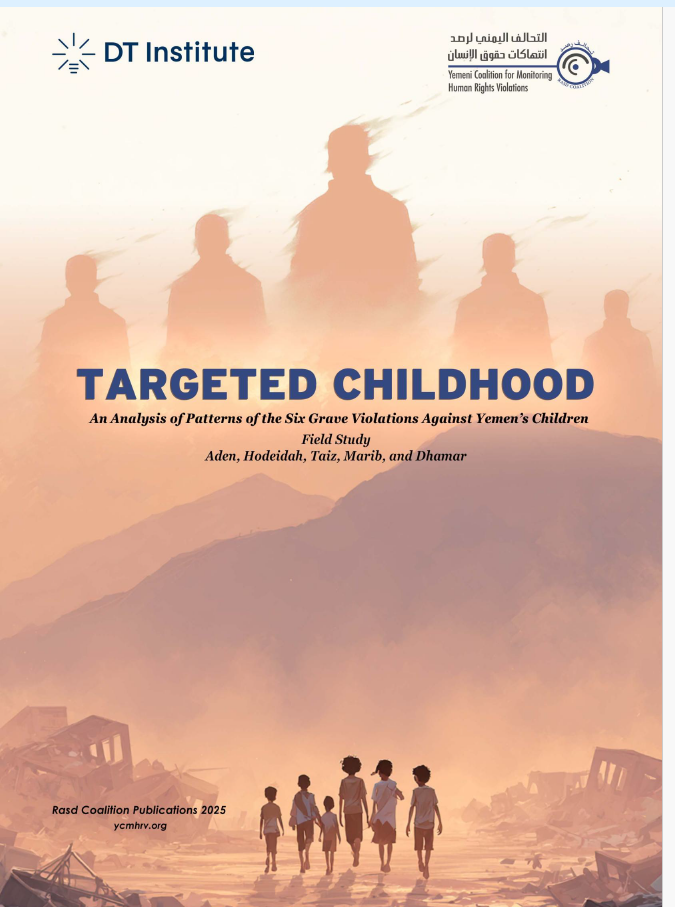DT Institute, in partnership with SAM for Rights & Liberties and the Abductees’ Mothers Association, under the SPARK project, organized an online webinar to explore transitional justice (TJ) from the perspectives of Yemen’s main political parties. The webinar was part of a broader series of public dialogues aimed at raising awareness and reducing polarization around TJ in Yemen. By convening senior representatives from key political forces, the session highlighted not only a shared acknowledgment of the need for justice and reconciliation, but also stark differences in views about when transitional justice should begin, how it should be implemented, and whose interests it should prioritize.
Abdulwahab Mahmoud, Head of the Parliamentary Bloc of the General People’s Congress (GPC), framed TJ as a desirable yet premature goal, given the multiple phases of Yemen’s conflicts and the absence of functioning state institutions. He emphasized the need for comprehensive national reconciliation as a prerequisite, warning that pushing for accountability before reconciliation—especially in the absence of state authority—risks deepening divisions. Mahmoud also noted the lack of legislative grounding for TJ in Yemen, pointing to a previously drafted law that was never enacted.
From the Nasserist Unionist Party, Ali Al-Dhala’i, Member of the Central Committee, echoed concerns about Yemen’s fragmented institutions and fragile sovereignty. He underscored the importance of rebuilding the state and unifying security and judicial institutions as essential preconditions for meaningful TJ. Al-Dhala’i also warned that tribal norms and the absence of historical documentation and formal recognition of wrongdoing could hinder the establishment of a genuine TJ process.
Representing the Islah Party, Mohammed Naji Allaw, Head of the Legal Department, emphasized that transitional justice cannot succeed without strong political will, national unity, and the re-establishment of functioning state institutions. Drawing on international experiences—from Rwanda to South Africa—he argued for a phased but comprehensive TJ framework. However, he stressed that such models succeeded only under unified leadership and capable governance, which Yemen currently lacks. Allaw highlighted that political revenge among parties is more complex and dangerous than tribal tensions and must be addressed through inclusive reconciliation and adapted traditional mechanisms in the absence of formal justice systems.
Mutlaq Al-Akhaly, Member of the Central Committee of the Yemeni Socialist Party (Ishtiraki), took a justice-first stance, arguing that any reconciliation without accountability would amount to impunity. He emphasized that transitional justice must precede political settlements and warned against agreements that ignore victims’ rights. Al-Akhaly pointed to the interrupted post-2011 TJ process, noting that although progress was derailed by war, it produced a legacy—including reparations mechanisms and outcomes of the National Dialogue—that can inform a renewed effort. For him, TJ must rest on four pillars: truth, reparations, institutional reform, and prosecution.
Underlying these positions is a deeper contest over sequencing, scope, and moral ownership of transitional justice. All parties, either explicitly or implicitly, acknowledged that they have been both perpetrators and victims in Yemen’s protracted conflict. This mutual entanglement complicates the question of when TJ should begin—since each actor tends to favor a timeline that centers their own suffering while minimizing their accountability. The debate also extends to what should come first: reconciliation or justice. The GPC and Nasserist Party prioritize reconciliation and political stability as preconditions, while Islah calls for a simultaneous track, and Ishtiraki insists that justice must lead. Beneath these differences lies a shared hesitation toward full accountability, especially criminal justice, driven by fears that TJ could be weaponized for political score-settling.
Despite these divergences, participants converged on one essential point: Yemen’s transitional justice process must be nationally owned, inclusive, and rooted in its complex realities. The webinar clarified key points of disagreement while illuminating areas of potential convergence. As part of the SPARK initiative, the dialogue reaffirmed a vital truth: Yemen’s journey toward justice begins with open, difficult conversations—and this was a courageous step in that direction.

